12 minute read
|
Gas Grill
Gone are the days when gas grills were seen as disposable outdoor gadgets. Ditching charcoal into a cheap metal container and using lighter fluid just doesn’t make sense anymore when you can enjoy the convenience and performance of a high-quality gas grill. With so many options on the market, it's easy to get overwhelmed. But with these 8 tips, you’ll be well on your way to finding the perfect gas grill for your needs.
Whether you're a seasoned chef or just starting out, choosing the right gas grill can make all the difference in your outdoor cooking experience. The right model will not only last longer but also offer more versatility and ease of use. Here are eight key considerations to help you make an informed decision.
1: What Features Do You Need?
When shopping for a gas grill, ask yourself: What kind of grilling do you currently do? And what would you like to do in the future? If you mainly cook burgers and hot dogs, a basic model might be sufficient. But if you're looking to expand your grilling skills, consider features that add flexibility and convenience.
High-end brands like AEI PGS offer top-tier models with innovative features that elevate your grilling game. Their A-Series, T-Series, and Legacy Grills are known for their quality and performance, making them a favorite among grill enthusiasts.
2: Look for Durable Materials
The materials used in a grill’s construction play a big role in its longevity. Many budget models are made from low-quality metals that rust quickly. When shopping, opt for stainless steel — it’s durable, resistant to corrosion, and looks great. Be cautious of models that use painted parts; they may hide lower-quality materials underneath.
3: Understand Grill Performance
Performance isn’t just about how hot your grill gets — it's also about how consistently it maintains that heat over time. While BTUs (British Thermal Units) are important, they don’t tell the whole story. A grill with high BTUs but poor internal components may lose heat quickly. Look for models with long-lasting, high-quality parts inside and out.
4: Don’t Ignore the Design
A good gas grill should blend functionality with style. Whether you prefer a sleek stainless steel unit or a more understated black model, your choice should complement your outdoor space. Consider the size, shape, and finish to ensure it fits well with your backyard or patio design.
5: Pay Attention to BTU Ratings
While BTUs indicate the maximum energy output, it’s important to know whether the rating applies to the main burners or includes additional features like side burners or rotisseries. Some manufacturers inflate their ratings by combining different elements. Always check the specifications carefully.
6: Heat Distribution is Key
Even heat distribution is crucial for consistent cooking. Cheaper grills often have hot spots, which can lead to unevenly cooked food. Look for models with wide flame patterns and high-quality heat stones to reduce flare-ups and improve cooking results.
7: Choose the Right Cooking Area Size
Your cooking area should match your lifestyle. If you usually cook for a small group, a compact grill might work. But if you love hosting gatherings, go for a larger model with ample space for multiple dishes. It's better to plan ahead than to rent another grill later.
8: Check the Warranty
Warranties are often overlooked, but they’re an important part of any major purchase. Many gas grills come with limited or no warranties, which can be risky. High-quality brands like AEI PGS offer industry-leading lifetime warranties, giving you confidence in your investment. Want more information? Have a question? Contact us today, and we will be happy to help!
HONY®Polyethylene (PE) plastic is a semi-crystalline thermoplastic with high toughness and excellent chemical resistance. Compared with other plastics, polyethylene plastics have lower mechanical strength and high temperature resistance.High Density Polyethylene (HDPE) sheet is extremely strong against impact, abrasion resistant, and exhibits a low coefficient of friction. The material is also moisture, stain, and odor resistant, and is FDA approved for use in the food processing industry (mainly for cutting boards). The material's durability makes it a perfect match for a variety of applications such as water tanks, chute linings, bottle/bottle cap production and numerous other industrial uses. Borated HDPE offers radiation protection in nuclear facility applications.
High-density Poly Ethylene also is known as HDPE is made from a cord of ethylene molecules (the poly part of polyethylene), and is famous for its light weight and high durability.
The preference of HDPE sheets is increasing from leaps and bounds in the market today, as it's able to cut down on the material which is then used for producing and packaging products for its strength and weight.
It is also available at tap plastics in sheet form with either a smooth or textured surface. The textured surface is also called cutting board. Both smooth and textured surfaces are FDA approved for food contact.
HONY®PE series products include the following materials:
Polyethylene
(PE)
Polyethylenes are semi-crystalline materials with excellent chemical resistance, good fatigue and wear resistance and a wide
range of properties. Polyethylenes are easy to distinguish from other plastics because they float in water. Polyethylenes
provide good resistance to organic solvents, degreasing agents and electrolytic attack. Polyethylene is used more than any
other thermoplastic polymer. There are a wide variety of grades and formulations available that have an equally wide range of
properties.
Benefits
Durability Easily fabricated
Chemical resistance
Abrasion resistance
Good electrical properties
Impact resistance
Low coefficient of friction
Moisture resistance
Applications
Packaging
Skid
Plates
Conveyer
Systems
Tanks
Containers
Truck liners
POLYETHYLENE GRADES
Low Density Polyethylene (LDPE)
This extruded material offers good corrosion resistance and low moisture permeability. It can be used in applications where
corrosion resistance is important, but stiffness, high temperature, and structural strength are not. A highly flexible product,
LDPE is used widely in orthopaedic products, or where mobility without stress fatigue is desired. LDPE is also frequently used
in consumer packaging, bags, bottles, and liners.
Benefits
Lightweight
Formable
Impact
Resistant
Good electrical properties
Easily cleaned
Easily Fabricated
Applications
Chemical resistant tank and containers
Food storage containers
Laboratory equipment
Corrosion resistant work surfaces
Vacuum formed end caps and tops
Moisture barrier
POLYETHYLENE GRADES
High Density Polyethylene (HDPE)
Representing the largest portion of the polyethylene applications, HDPE offers excellent impact resistance, light weight, low
moisture absorption, and high tensile strength. HDPE is also non-toxic and non-staining and meets FDA and USDA certification for food processing.
Benefits
Abrasion Resistant
High impact resistance
Low coefficient of friction
Abrasion resistant
Scratch and marking resistant
Chemical resistant
Water and moisture resistant
Applications
Food cutting boards
Corrosion resistant covers
Pipe flanges
Radiation shielding
Self-supporting containers
Prosthetic devices
Ultra High Molecular Weight Polyethylene (UHMW PE)
UHMWPE is light weight (1/8 the weight of steel), high tensile strength, and is easily machined. It is the ideal material for
many wear parts in machinery and equipment as well as a superb lining in material handling systems and storage containers.
UHMW PE is self-lubricating, shatter resistant, long-wearing, abrasion and corrosion resistant. It meets FDA and USDA acceptance for food and pharmaceutical equipment and is a good performer in applications up to 180 °F (82 °C) or when periodically cleaned with live steam or boiling water to sterilize.
uhmwpe Benefits
Durability
Easily fabricated
Chemical resistance
Abrasion resistance
Electrical properties
Impact resistance
Low coefficient of friction
Moisture resistance
hdpe Applications
Tanks and containers
Food storage containers
Laboratory equipment
Disposable formed products
Surface structures
Vacuum formed end caps
and tops
Moisture barrier
Sheet Hdpe Feature
Low density
Excellent wear resistance
Very resistant to damage
High toughness (the same at low temperature)
High elongation at break
Excellent electrical and dielectric properties
Very low water absorption
Low vapor permeability
Strong chemical resistance
Good resistance to stress cracking
Food safety
Polyethylene Sheet Application
Guide pulley
Guide chain
Pads for storage blocks, silos and conveyor channels
Suction cups and filter plates
Pumps and valves
Gasket
Slide model
Food industry parts
Polyethylene Sheet,Polyethylene (High Density) HDPE,uhmwpe plate shaft,hdpe,Ultra high molecular weight polyethylene Hony Engineering Plastics Limited , https://www.honyplastic.com8 Essential Tips for Choosing the Perfect Gas Grill
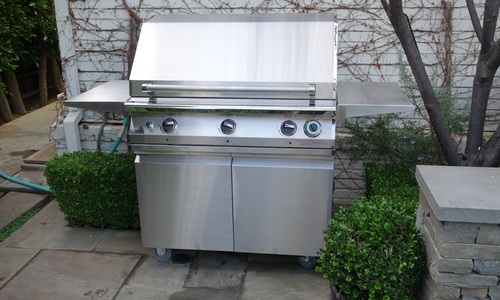
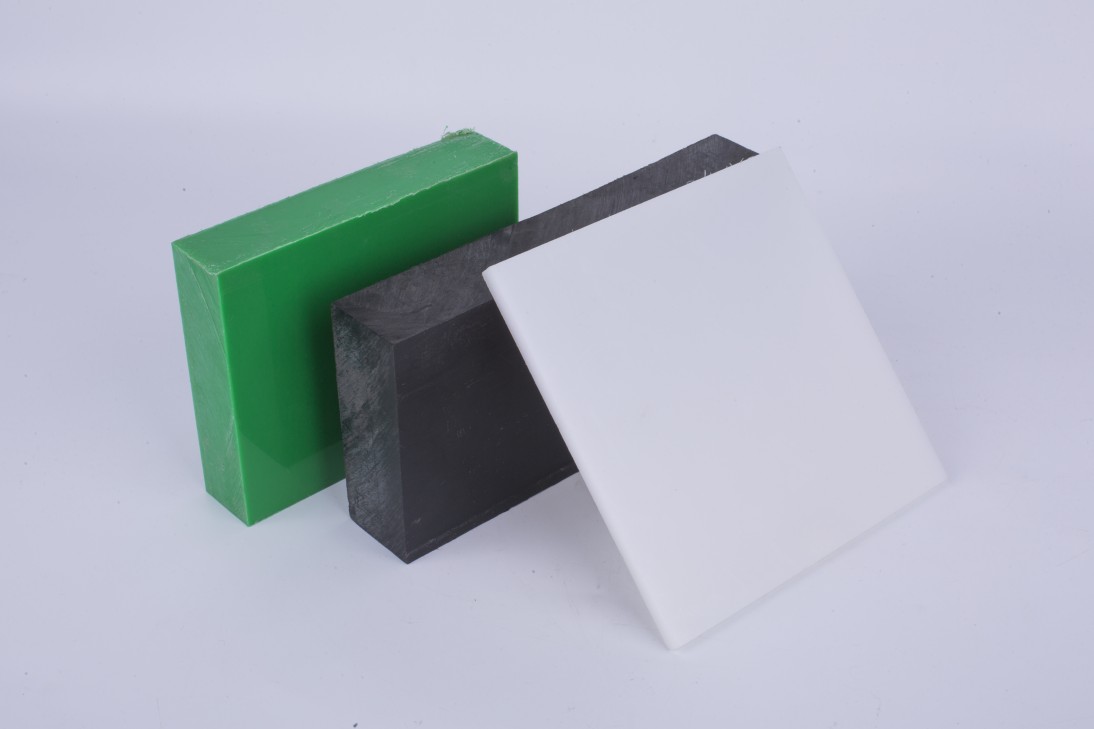
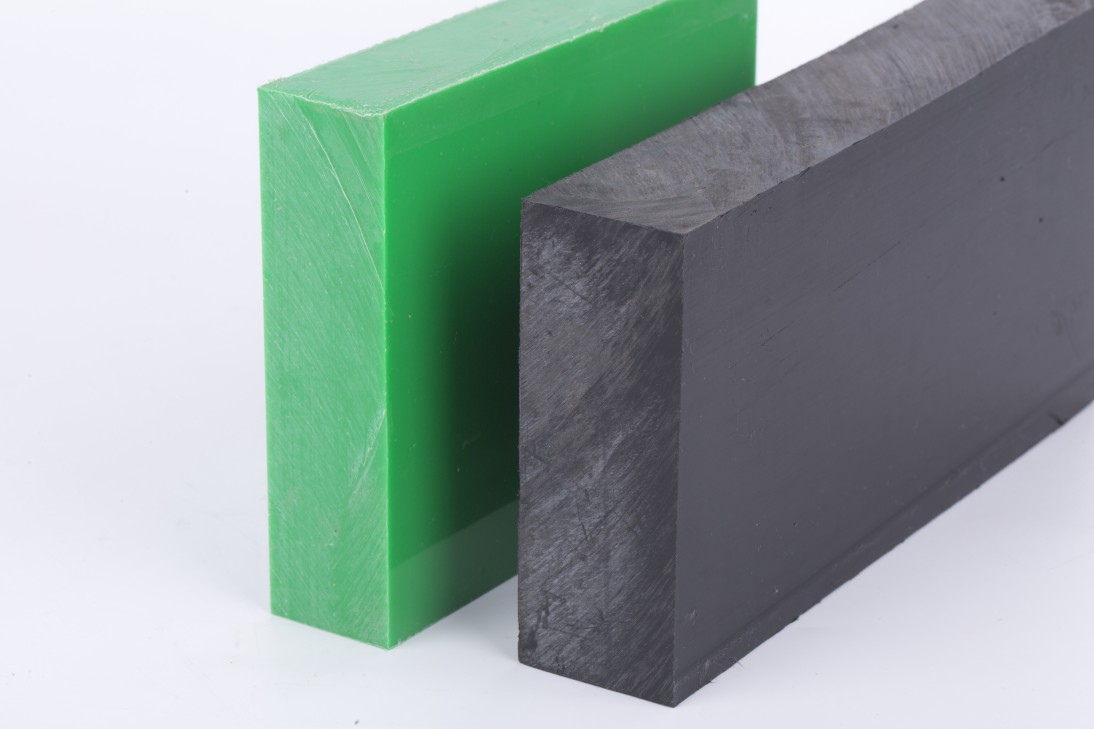
Item
RESULT
UNIT
PARAMETER
NORM USED
Mechanical properties
Modulus of elasticity
1000
MPa
In tension
DIN EN ISO 527-2
Modulus of elasticity
1000 - 1400
MPa
In flexure
DIN EN ISO 527-2
Tensile strength at yield
25
MPa
50 mm/min
DIN EN ISO 527-2
Impact strength (Charpy)
140
Kj/m 2
Max. 7,5j
Notched Impact stren. (Charpy)
No break
Kj/m 2
Max. 7,5j
Ball indentation hardness
50
MPa
ISO 2039-1
Creep rupture strength
12,50
MPa
After 1000 hours static load 1% elong. after 1000 hours Against steel p=0,05 N/mm 2
Time yield limit
3
MPa
Coefficient of friction
0,29
------
Thermal properties
Glass transition temperature
-95
°C
DIN 53765
Crystalline melting point
130
°C
DIN 53765
Service temperature
90
°C
Short term
Service temperature
80
°C
Long term
Thermal expansion
13 - 15
10-5K-1
DIN 53483
Specific heat
1,70 - 2,00
J/(g+K)
ISO 22007-4:2008
Thermal conductivity
0,35 - 0,43
W/(K+m)
ISO 22007-4:2008
Heat distorsion temperature
42 - 49
°C
Method A
R75
Heat distorsion temperature
70 - 85
°C
Method B
R75
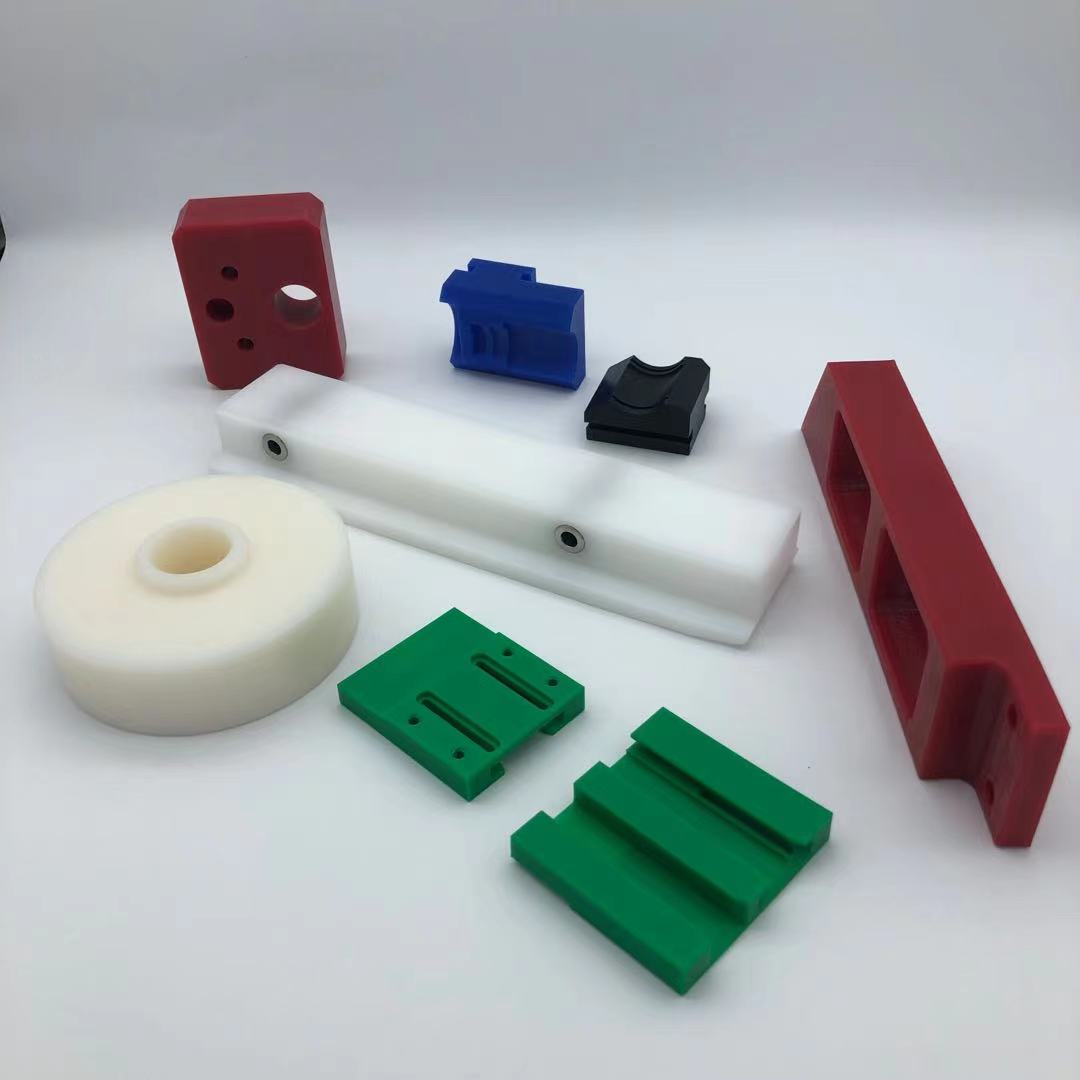
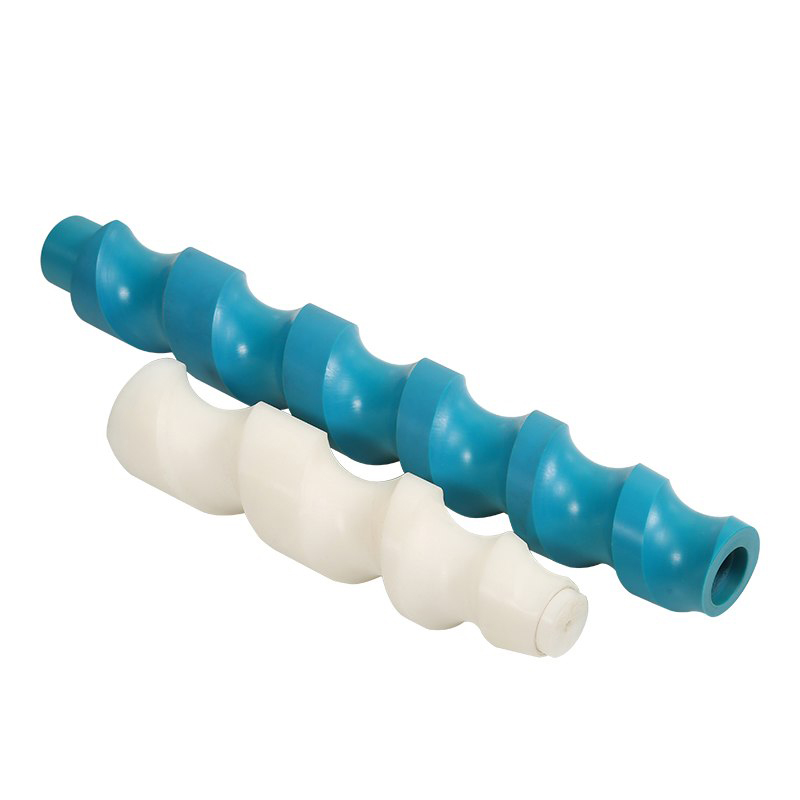
8 Tips for Buying Your Best Gas Grill
Go Back To Blog